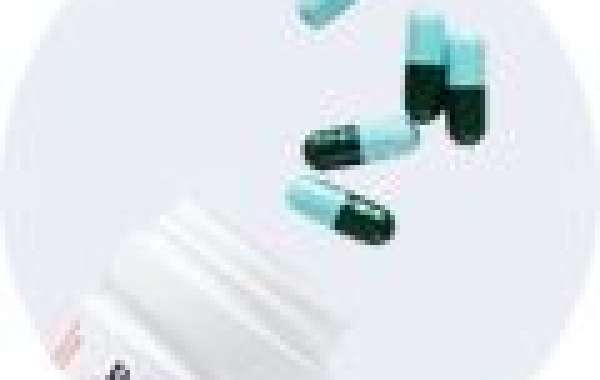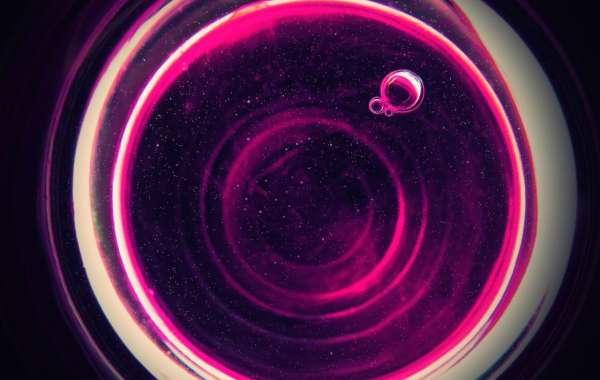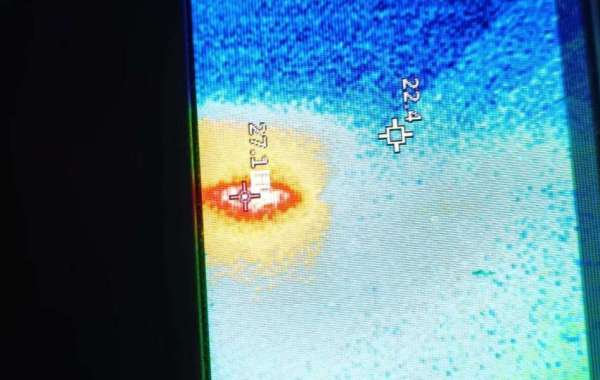Ensuring the quality of biochemical products from biochemicals suppliers is critical, as substandard products can lead to unreliable research results, failed experiments, or even risks in medical/biotech applications. The process requires proactive verification, strict evaluation, and ongoing monitoringacross the supplier selection, pre-purchase, and post-purchase stages. Below is a detailed, step-by-step guide:
1. Pre-Selection: Screen biochemicals suppliers Thoroughly
The first line of defense is choosing reputable biochemicals suppliers with a proven track record of quality. Focus on verifying their qualifications, certifications, and industry reputationto avoid high-risk partners.
Key Actions:
- Verify Certifications Compliance
Ensure the biochemicals suppliers meets global or regional quality standards for biochemical production. Critical certifications include:
- ISO Standards: ISO 9001 (quality management system) and ISO 13485 (for medical device-related biochemicals, e.g., reagents for diagnostics).
- GMP (Good Manufacturing Practice): Mandatory for biochemicals used in pharmaceuticals, clinical research, or cell therapy (e.g., cell culture media, antibodies).
- GLP (Good Laboratory Practice): Required if the biochemicals suppliers conducts in-house quality testing for research-grade products (ensures test data is reliable).
- Regional compliance: For example, FDA (U.S.) registration for products sold in the U.S., CE marking (EU) for reagents, or NMPA (China) approval for domestic biochemicals suppliers.
- Assess Industry Reputation Track Record
- Check customer reviewson platforms like ResearchGate, LabWrench, or industry forums (e.g., BioProcess International) to see feedback on product consistency and after-sales support.
- Review the supplier’s history: Avoid new biochemicals suppliers with 3 years of experience in biochemicals (unless they have a team with deep industry expertise). For critical products (e.g., rare enzymes, custom peptides), prioritize biochemicals suppliers with 10+ years of specialization.
- Ask for customer references: Reputable biochemicals suppliers will provide contact information for existing clients (e.g., universities, biotech firms) so you can verify product performance firsthand.
- Evaluate Technical Capabilities
- Confirm the supplier has in-house RD and quality control (QC) labs: Avoid "trading-only" companies that outsource production without oversight—they cannot guarantee batch-to-batch consistency.
- Inquire about production processes: For example, recombinant proteins should be produced in validated cell lines (e.g., HEK293, CHO) with purification steps (e.g., affinity chromatography) documented. For small molecules (e.g., inhibitors), ask about synthesis routes and impurity control.
2. Pre-Purchase: Validate Product Quality Before Bulk Orders
Even with reputable biochemicals suppliers, never skip pre-purchase validation—this step catches potential issues (e.g., low purity, contamination) before you invest in large quantities.
Key Actions:
- Request a Detailed Certificate of Analysis (CoA)
The CoA is the most important quality document—it provides batch-specific data to confirm the product meets your requirements. Review the CoA for:
- Purity: For example, 95% purity for small-molecule inhibitors (tested via HPLC or NMR), 98% purity for antibodies (SDS-PAGE, HPLC).
- Impurity Limits: Ensure harmful impurities (e.g., endotoxins 0.1 EU/mL for cell culture products, heavy metals 10 ppm) are within acceptable ranges for your application.
- Activity/Functionality: For enzymes, check specific activity (e.g., U/mg protein via spectrophotometry); for antibodies, confirm binding affinity (e.g., ELISA, SPR).
- Stability Data: Verify the product’s shelf life under recommended storage conditions (e.g., -20°C, 4°C) and whether it has been tested for degradation over time.
- Order a Small-Scale Sample for In-House Testing
For critical applications (e.g., clinical research, drug discovery), test the sample using your own QC protocols to ensure it performs as expected:
- Purity verification: Use your lab’s HPLC, MS, or NMR to cross-check the CoA’s purity claims.
- Functional testing: Run a pilot experiment (e.g., use the enzyme to catalyze a reaction, test the antibody’s specificity in Western blot) to confirm activity.
- Contamination checks: Test for common contaminants like bacteria/fungi (via agar plating), mycoplasma (via PCR), or endotoxins (via LAL assay) for cell culture products.
- Clarify Custom Requirements (If Applicable)
If you need custom biochemicals (e.g., labeled peptides, modified proteins), provide a detailed technical specification sheetto the supplier, including:
- Exact molecular weight, purity, and modification sites (e.g., biotinylation at the N-terminus).
- Required QC tests (e.g., mass spectrometry for peptide identity).
- Tolerance limits for impurities (e.g., 5% truncated peptides).
Get a written confirmation from the supplier that they can meet these requirements before proceeding.
3. Purchase Delivery: Monitor Logistics to Avoid Quality Degradation
Biochemicals are often sensitive to temperature, light, or shock—poor logistics can ruin quality even if the product was qualified when shipped.
Key Actions:
- Confirm Shipping Conditions
- Specify required shipping conditions (e.g., dry ice for -80°C products, cold packs for 2–8°C reagents) and ask the supplier to use temperature-monitoring devices(e.g., data loggers) in the package.
- For international shipments, ensure compliance with regulations (e.g., IATA for hazardous materials like flammable solvents) to avoid delays or damage.
- Inspect the Shipment Upon Receipt
- Check the package for damage (e.g., broken vials, leaking containers) immediately.
- Verify the temperature log: If the product was exposed to temperatures outside the recommended range (e.g., a -20°C enzyme left at room temperature for 6 hours), reject the shipment.
- Cross-check the product details (batch number, expiration date, quantity) against the purchase order and CoA to ensure no mix-ups occurred.
4. Post-Purchase: Establish Long-Term Quality Monitoring
Quality assurance does not end after delivery—consistently monitor batch performance to identify trends (e.g., declining purity) and address issues with the supplier.
Key Actions:
- Maintain a Quality Record System
Document all information for each batch, including:
- Supplier name, batch number, and CoA.
- In-house test results (purity, activity, contamination).
- Experiment outcomes (e.g., whether the product yielded expected results).
This record helps trace problems (e.g., if multiple experiments fail, you can check if they used the same batch) and provides evidence if you need to claim a refund.
- Conduct Periodic Re-Evaluation of biochemicals suppliers
- Every 6–12 months, review the supplier’s performance based on:
1. Batch consistency: Do test results (e.g., purity, activity) vary significantly between batches?
2. On-time delivery: Are shipments frequently delayed?
3. After-sales support: Does the supplier respond promptly to quality complaints (e.g., replacing a defective batch within a week)?
- If performance declines (e.g., 2+ batches fail in-house testing), consider qualifying an alternative supplier to avoid disruptions.
- Communicate Quality Issues Proactively
If you find a quality problem (e.g., a protein with lower activity than the CoA claims), contact the supplier immediately with:
- The batch number and CoA.
- Your in-house test data (e.g., spectrophotometer readings showing reduced activity).
- Photos of any physical defects (e.g., clumped powder).
Reputable biochemicals suppliers will offer a replacement, refund, or root-cause analysis (e.g., investigating if the issue was due to a production error).
5. Additional Tips for High-Risk Products
For especially sensitive or high-value biochemicals (e.g., CRISPR reagents, viral vectors), take extra precautions:
- Audit the Supplier’s Facility: Request an on-site or virtual audit of their production and QC labs to verify compliance with GMP/GLP (e.g., cleanroom conditions, equipment calibration).
- Sign a Quality Agreement: A legal contract that defines quality requirements (e.g., "all batches must have endotoxin 0.05 EU/mL") and liability (e.g., the supplier is responsible for costs if a defective batch causes experiment failure).
- Use Multiple biochemicals suppliers: For critical products (e.g., cell culture media needed for ongoing experiments), qualify 2–3 biochemicals suppliers to avoid shortages if one supplier has a quality issue.
By following these steps, you can significantly reduce the risk of using substandard biochemicals and ensure the reliability of your research, manufacturing, or clinical applications. The key is to prioritize transparency(e.g., demanding detailed CoAs) and proactivity(e.g., testing samples) rather than relying solely on the supplier’s claims.







